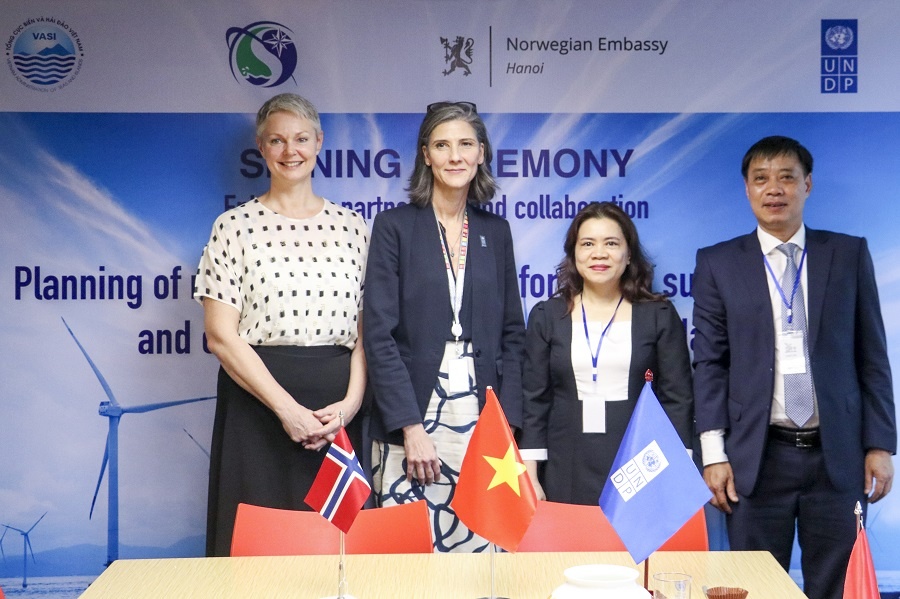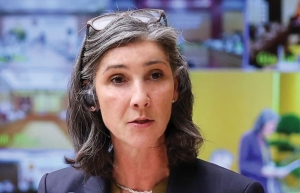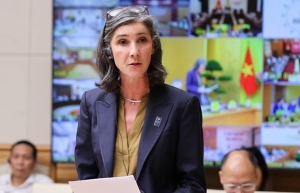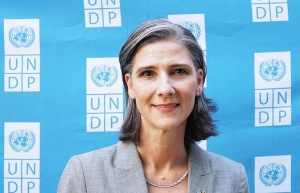Enhanced cooperation for ocean sustainability and climate change
Attending the ceremony were representatives of the Norwegian Embassy in Hanoi, the UNDP, the Vietnam Administration of Seas and Islands, and the Vietnam Meteorological and Hydrological Administration.
This new technical assistance package will support the Vietnamese government in strengthening and implementing maritime spatial planning (MSP). It will also assist in creating and establishing a more rational use of marine space and the interconnections between its uses, balancing the need for growth with the need to maintain marine ecosystems and achieving social and economic goals in an open and organised manner.
 |
| The UNDP and the Norwegian Embassy in Hanoi cooperate to enhance ocean sustainability and climate change response in Vietnam |
This endeavour aims to promote a cross-sectoral approach to the management of economic, environmental, and social concerns with strategic planning and long-term investments. The MSP is not intended to replace sector-specific planning. Instead, it provides integrated evidence-based data to support more confident, complete, and complementary decisions.
The technical assistance package will be administered at a central level and in three sites at a local level. The sites were selected based on three main criteria. They needed to be small eco-regions with the potential for practical solutions, have the availability of a reasonable amount of spatial biophysical data and information on critical resources, and have a competent and willing authority to develop and implement the marine spatial plans.
Vietnam is a coastal country with more than a third of the population living in coastal areas. The economy of the sea, coastal provinces, and cities account for approximately 50 per cent of the country’s GDP, with the marine economy alone contributing 20-22 per cent.
However, habitat fragmentation, degradation, loss, fishing, and other kinds of overexploitation threaten Vietnam's ocean health. Climate change, pollution, and marine litter are also major concerns. Marine resources, including coral reefs, have been experiencing noticeable degradation and dramatic decreases.
Located in a privileged geopolitical position in the Eastern Sea, along with its myriad of marine resources, Vietnam boasts petroleum, natural gas, and minerals in coastal and offshore areas that have the potential to bring significant economic benefits to both national and local economies.
This technical assistance package builds on the potential to diversify the economy and respond to climate change, including marine renewable energy, ocean wind power, marine pharmaceuticals, and the upscaling of algae and seaweed production that complies with environmentally sensitive development.
UNDP resident representative in Vietnam Ramla Khalidi said, “The ocean provides significant opportunities for a green and blue economic rebound and offers great potential for onshore and offshore wind power, which if sustainably developed, will support energy security and help Vietnam meet its commitment to net-zero emissions by 2050.”
“The UNDP will continue to accelerate and strengthen the work on marine spatial planning, which is vital to unlocking the potential of the blue economy, and in particular to leverage Vietnam’s enormous potential for marine wind energy as a key renewable power source for the country’s climate target," added Khalidi.
Hilde Solbakken, Norwegian Ambassador to Vietnam and Laos stated, “Norway has significant experience in the development and application of MSP that can be shared with Vietnam. In order to achieve the high-income aspirations by 2045 and net-zero commitment by 2050, Vietnam needs to shift its growth model, essentially through a smooth energy transition process as well as unlocking the potential of its blue economy."
"Vietnam, therefore, needs to build its capacity in science-based, sustainable ocean management, in which MSP is essential. We are happy to work with UNDP Vietnam and our Vietnamese partners in this process through the three-year project – Planning of national marine space for ocean sustainability and climate change response in Vietnam – that we signed today," said ambassador Solbakken.
Pham Thu Hang, deputy director general of the Vietnam Administration of Seas and Islands (VASI) said, “Marine spatial planning is a key task assigned by the prime minister to the Ministry of Environment and Natural Resources – specifically VASI. The plan is founded on the principle of zoning based on the ecosystem and the demands of marine economic sectors."
"Marine spaces related to Vietnam’s sea include coastal land, sea areas, and airspace in 28 coastal provinces and cities. Marine planning is an important foundation for economic development in the spirit of Resolution 26 from the government on the sustainable development of Vietnam’s marine economy,” Hang concluded.
The three-year technical assistance package will accelerate progress in marine spatial planning by emphasising the promotion of research, technology transfer, and innovation in the marine sector. It will conduct integrated planning that promotes sustainable marine development in the target areas.
 | Innovating to ease burdens of crisis Vietnam has made tremendous progress in innovation, science, and technology. According to the 2021 WIPO Global Innovation Index, Vietnam leads the group of lower middle-income countries, ranking 44 out of 132 countries with more than 18,500 scientific and technological discoveries. |
 | New UNDP Resident Representative pledges support to Vietnam’s development Ramla Al Khalidi, newly-appointed UNDP Resident Representative in Vietnam, has pledged to further support Vietnam’s development, covering climate change response and the settlement of bomb and mine consequences. |
 | Intensifying climate change a threat to global human rights Vietnam is among the world’s most vulnerable countries to climate change. It is therefore especially encouraging that Prime Minister Pham Minh Chinh committed to net-zero emissions last year. |
What the stars mean:
★ Poor ★ ★ Promising ★★★ Good ★★★★ Very good ★★★★★ Exceptional
Related Contents
Latest News
More News
- $100 million initiative launched to protect forests and boost rural incomes (January 30, 2026 | 15:18)
- Trung Nam-Sideros River consortium wins bid for LNG venture (January 30, 2026 | 11:16)
- Vietnam moves towards market-based fuel management with E10 rollout (January 30, 2026 | 11:10)
- Envision Energy, REE Group partner on 128MW wind projects (January 30, 2026 | 10:58)
- Vingroup consults on carbon credits for electric vehicle charging network (January 28, 2026 | 11:04)
- Bac Ai Pumped Storage Hydropower Plant to enter peak construction phase (January 27, 2026 | 08:00)
- ASEAN could scale up sustainable aviation fuel by 2050 (January 24, 2026 | 10:19)
- 64,000 hectares of sea allocated for offshore wind surveys (January 22, 2026 | 20:23)
- EVN secures financing for Quang Trach II LNG power plant (January 17, 2026 | 15:55)
- PC1 teams up with DENZAI on regional wind projects (January 16, 2026 | 21:18)

 Tag:
Tag:




















 Mobile Version
Mobile Version